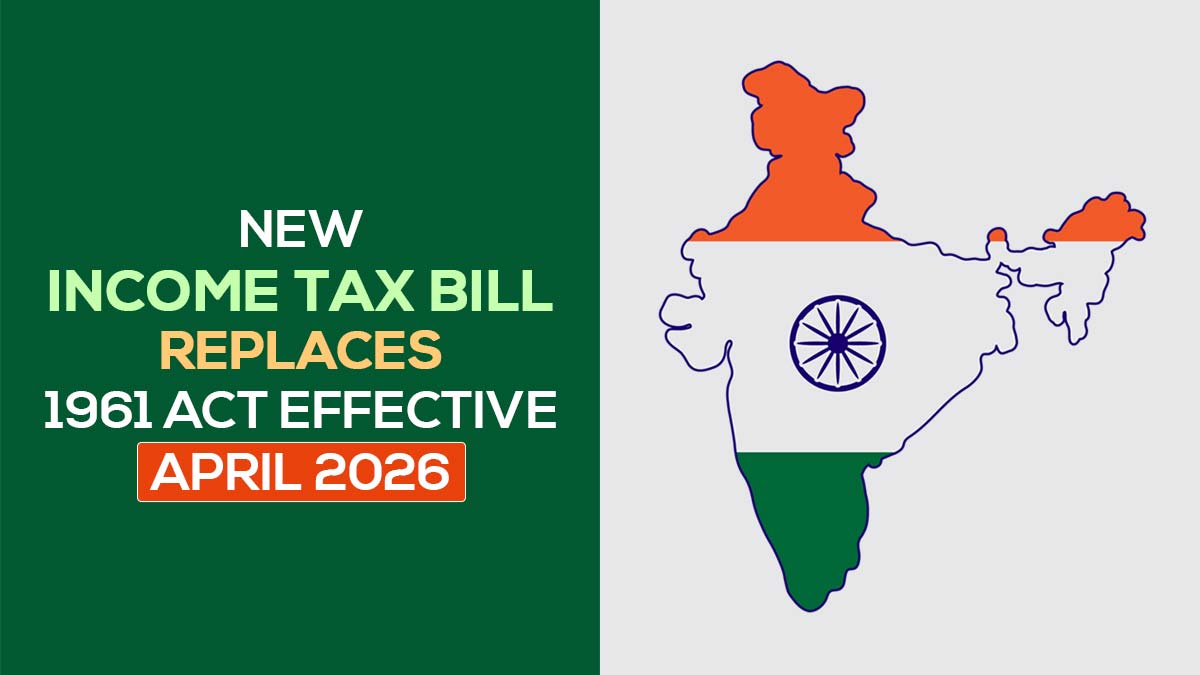
The Parliament has approved a new Income Tax Bill to modernise the outdated Income Tax Act, which has been in place since 1961. The new law will take effect on April 1, 2026.
Finance Minister Nirmala Sitharaman, piloting the Income Tax Bill 2025, in the Rajya Sabha, mentioned that no new tax rate will be charged and merely simplified the language, which was needed to understand the complex Income Tax laws.
Redundant provisions and archaic language have been removed, the number of sections has been lessened from 819 in the Income Tax Act of 1961 to 536, and the number of chapters has been reduced from 47 to 23 in the new Bill.
From 5.12 lakh, the number of words had been reduced to 2.6 lakh in the new Income Tax Bill 2025, and it is the first time that it introduces 39 new tables and 40 new formulas, superseding the dense text of the 1961 law to improve clarity.
“These changes are not merely superficial; they reflect a new, simplified approach to tax administration. This leaner and more focused law is designed to make it easy to read, understand and implement,” Ms. Sitharaman mentioned while answering before a short debate in the absence of the Opposition in the Rajya Sabha.
The House, including the Income Tax Bill, 2025, returned the Taxation Laws (Amendment) Bill, 2025, to the Lok Sabha that had passed these money Bills.
“To remove confusion, I want to say that the aim of bringing in this new law is to simplify the language and lucidity, which is required for understanding,” the Minister specified.
As per Prime Minister Narendra Modi, whether it is COVID or no COVID, not much of a tax burden should be there on the people, Ms. Sitharaman cited. She mentioned, “We have not increased any new tax.”
Read Also: New IT and GST Reforms to Reduce Compliance Burden for Small Taxpayers
A taxpayer-friendly Income Tax Act 2025, replacing the 1961 Act, was effective for the financial system of the country.
“I am shocked that the Opposition doesn’t want to participate. The Opposition had agreed in the Business Advisory Committee to debate the Bill in both the Lok Sabha and the Rajya Sabha,” she cited.
She added that the Opposition frequently says, “you don’t want to discuss anything, we want to have charcha. We agreed for 16 hours of charcha in the Lok Sabha and 16 hours of charcha here (Rajya Sabha)…where are they today?”.
Previously Opposition, while asking for a discussion on special intensive revision of the voter list in Bihar, staged a walkout from the Rajya Sabha. The new Income Tax Bill was drafted within a record time of 6 months and rolled out in the Budget session in February 2025.
A team of dedicated officers of the Income Tax department has worked on drafting the new Bill involved nearly 75,000 person-hours. In a short time, the Finance Ministry would be issuing FAQs and an information memorandum for more information on the new legislation, the Minister informed the House.
In making the rules, the officials of the Ministry were busy, which would make it easier, like the Bill. To operationalise the new legislation, the computer systems of the Income Tax department are required to be rebooted, as the new law shall come into effect from 1st April 2026.
In the Rajya Sabha, the Taxation Laws (Amendment) Bill, 2025, also passed by voice vote, incorporated amendments in the scheme of block assessment concerning Income Tax search cases, and shall furnish specific direct tax benefits to public investment funds of Saudi Arabia. It asked to amend the Income Tax Act, 1961 and also the Finance Act, 2025.
In July, the government declared that under the New Pension Scheme (NPS), all tax benefits available will apply to the Unified Pension Scheme (UPS), which was implemented from April 1, 2025.









